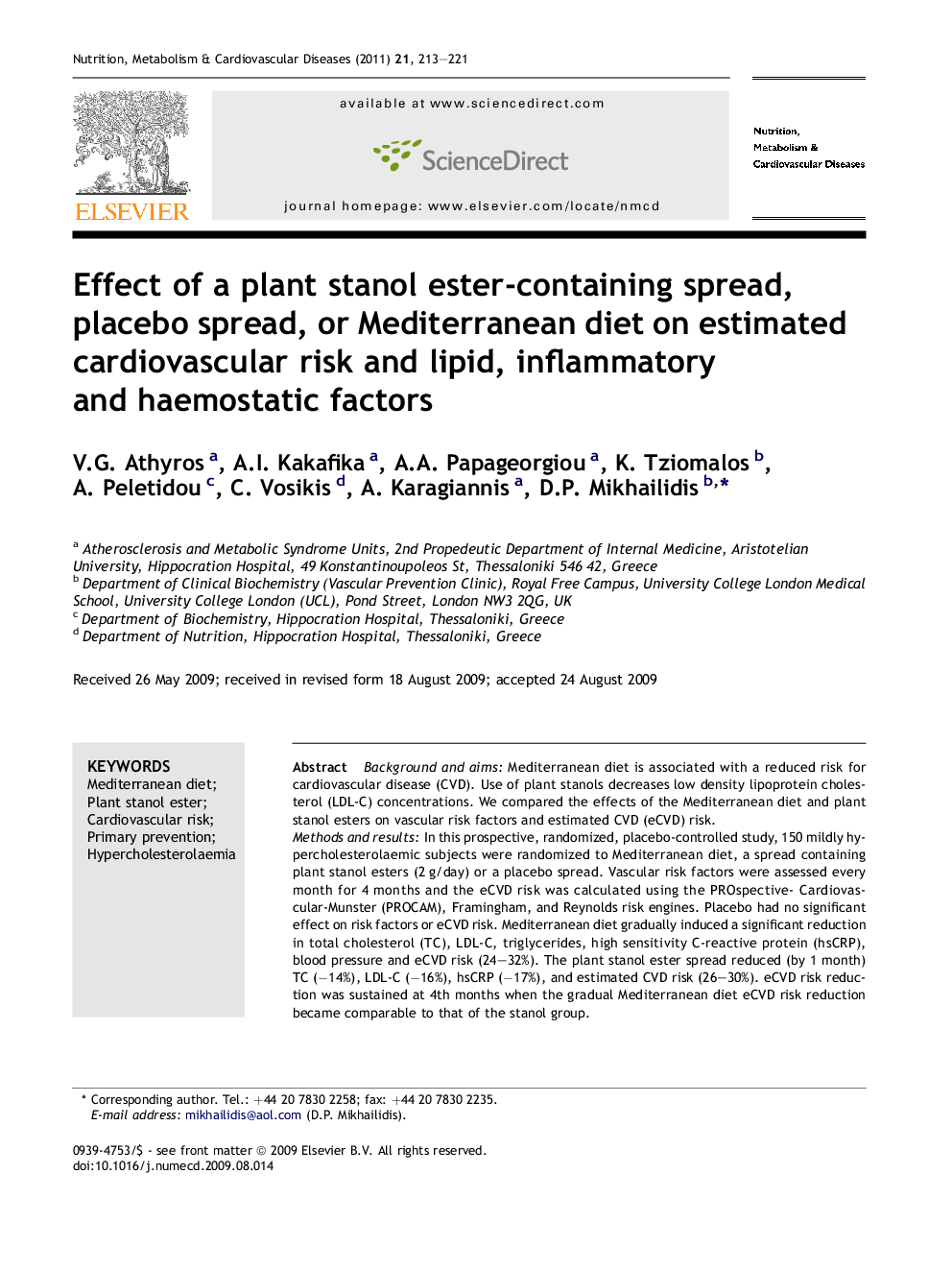| Article ID | Journal | Published Year | Pages | File Type |
|---|---|---|---|---|
| 3002105 | Nutrition, Metabolism and Cardiovascular Diseases | 2011 | 9 Pages |
Background and aimsMediterranean diet is associated with a reduced risk for cardiovascular disease (CVD). Use of plant stanols decreases low density lipoprotein cholesterol (LDL-C) concentrations. We compared the effects of the Mediterranean diet and plant stanol esters on vascular risk factors and estimated CVD (eCVD) risk.Methods and resultsIn this prospective, randomized, placebo-controlled study, 150 mildly hypercholesterolaemic subjects were randomized to Mediterranean diet, a spread containing plant stanol esters (2 g/day) or a placebo spread. Vascular risk factors were assessed every month for 4 months and the eCVD risk was calculated using the PROspective- Cardiovascular-Munster (PROCAM), Framingham, and Reynolds risk engines. Placebo had no significant effect on risk factors or eCVD risk. Mediterranean diet gradually induced a significant reduction in total cholesterol (TC), LDL-C, triglycerides, high sensitivity C-reactive protein (hsCRP), blood pressure and eCVD risk (24–32%). The plant stanol ester spread reduced (by 1 month) TC (−14%), LDL-C (−16%), hsCRP (−17%), and estimated CVD risk (26–30%). eCVD risk reduction was sustained at 4th months when the gradual Mediterranean diet eCVD risk reduction became comparable to that of the stanol group.ConclusionsPlant stanol esters yielded an early, by 1st treatment month, reduction of eCVD risk that resulted from a TC, LDL-C, and hsCRP decrease. eCVD risk reduction on the Mediterranean diet resulted from a change in several CVD risk factors and equaled that of plant stanol at 4 months. The consumption of plant stanol esters by moderately hypercholesterolaemic patients may be a useful option to reduce CVD risk in those who do not adopt a Mediterranean diet.
